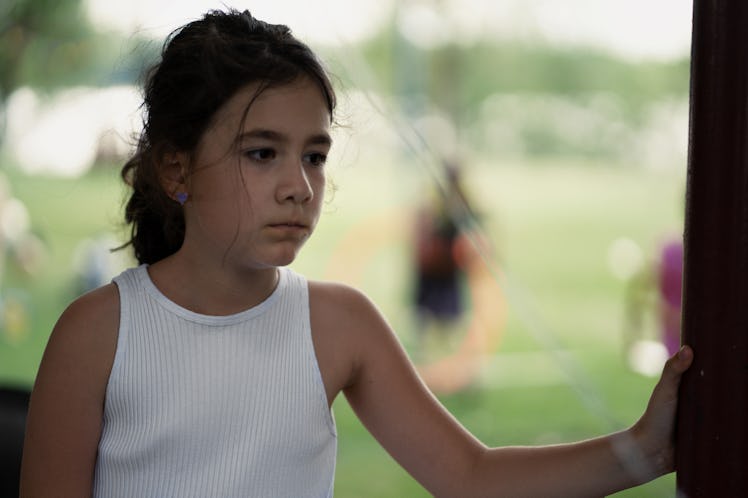What To Do When Your Child Isn’t Invited To A Kid’s Birthday Party
Kids aren’t going to get an invitation to every birthday party. Since that will be true for the rest of their lives, parents need to model a reasonable response.

Around grade school, birthday celebrations evolve from casual baby parties featuring smash cakes and drunk single people into far more involved social events. Costs sometimes spiral out of control — there’s always that family — and the invitation process becomes fraught. Kids are left out based on ever-shifting allegiances. Parents are left out based on same. It’s a pain and feelings (both adults’ and children’s) get hurt. For parents, the best bet is to just shrug it off, but kids may require some comforting.
“Unfortunately, not every child can be invited to every birthday party or other outings. As a child that can be pretty disheartening and difficult to understand,” advises Sharon Somekh, M.D., a pediatrician, parenting consultant, and founder of Raiseology.com. “I think if your child brings it up, it’s important to ask about and validate their feelings. If it seems the parent is more bothered than the child, then they should let it go.”
Letting go might be easier said than done, but it’s pretty important. It’s easy for parents to feel outraged on behalf of their children, but acting out on that is only going to embarrass the child. Confronting the hosting parents or talking to other parents about it is going to needlessly complicate the child’s relationships with their friends — relationships the child needs to navigate, not the parents. Even making a big display of emotion can raise doubts where there weren’t any, or make a child feel worse.
Kids take their social cues from their parents after all. It also may make it harder for a child to deal with similar situations in the future.
“While parents should empathize with their kids in these situations if they want to help their children develop resilience. Given that, they should ensure that their own response to the lack of invitation models resilience,” suggests Somekh. “If you as a parent are outwardly crushed that your child was left out, then your child will understandably have a more difficult time handling his own emotions about the incident.”
Limiting the size of a party is, after all, a completely reasonable thing to do, if not for the sake of the birthday kid, then at least for their parents. That doesn’t help the parents who feel as though their child is missing out, though.
But like many unpleasant things from childhood, being left out can be a teaching moment. Parents can choose to use this as an opportunity to teach their children about inclusion, exclusion, and friendships, according to Somekh.
“They can try to help their child realize why they are upset. Is it that they missed out on the laser tag or that they really thought the birthday boy was their friend? If missing the party is the issue, reassuring them that there will be other parties may be enough,” advises Somekh. “If they are upset about the friendship, a lesson on how to improve their relationships can be helpful or arranging for a playdate may help solidify the friendship.”
And parents can take the opportunity to plan a family outing or other event in its place. Parent-child days are always fun, and provide a good opportunity for families to engage and grow together. Birthday parties are fun, but they aren’t the end of the world. Parents who overvalue them — hosts and guests alike — aren’t really doing their kids any favors.
What to do When a Kid Doesn’t Get a Birthday Party Invitation
- Don’t push: If the kid isn’t bothered by not being invited, crisis averted. Go watch a movie.
- Listen well: Parents need to make sure they listen when their child talks to them to understand if it’s missing the party — or the state of the friendship — that hurts.
- Keep perspective (and offer it): Parents can be hurt on their child’s behalf, but this isn’t about their outrage — it’s about their child’s feelings. Parents need to stay calm and be the voice of reason.
- Don’t confront the other parents: They have enough to worry about, and it’s setting a precedent that can never be sustained.
- Have fun doing something else: Don’t treat the missed party like it’s the only one in town — there are plenty of awesome things kids and parents can do together.
This article was originally published on